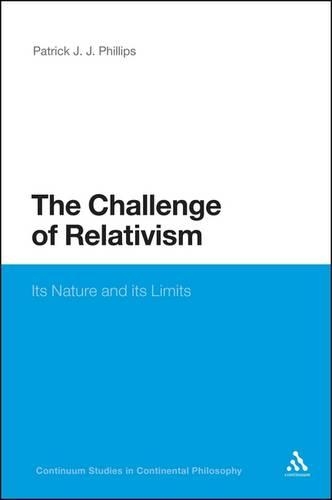
The Challenge of Relativism: Its Nature and Limits
(Paperback, NIPPOD)
Available Formats
Publishing Details
The Challenge of Relativism: Its Nature and Limits
By (Author) Dr Patrick J.J. Phillips
Continuum Publishing Corporation
Continuum Publishing Corporation
14th September 2011
NIPPOD
United States
Classifications
Tertiary Education
Non Fiction
149
Physical Properties
Paperback
168
Width 156mm, Height 234mm
264g
Description
Relativism, the view that knowledge is relative to time, culture, group and/or individual, remains a pervasive and influential intellectual position in philosophy and throughout the humanities. Since ancient times, relativists have been viewed as villains of truth and knowledge. They have undermined optimistic explanations of how we know things and, instead, have grounded knowledge in the ever-changing world of human opinion. But is the relativists' notorious reputation justified In this important new book Patrick Phillips investigates several varieties of relativism proposed over the centuries and identifies relativism as a central strand of thought that permeates much of post-colonial and postmodern thinking. He investigates the reasons that contribute to the evergreen' status of relativism and asks: why does relativism remain a constant occurrence in the writings of the humanities and what accounts for its popular appeal
Reviews
"...covering relativism...in 150 pages is an impossible task. In that light, the wide-ranging promises given at the beginning of this book are rather surprising...One of the book's main weaknesses is its lack of organization and focus. Phillips does not fulfill his first promise in any systematic way...A good part of the book is dedicated to showing how various versions of relativism fall prey to the accusation of incoherence. However, these versions are ultimately fairly similar and all seem to boil down to some branch of the claim that truth in general is relative. There is no mention of weaker versions of relativism in a short book, but an acknowledgement from the author of the existence of other types of relativism, and clarification that it is by no means a given that his objections to relativism apply to all of them, might have been helpful." -Eyja M. Brynjarsdottir, Philosophy in Review, 2007 -- Negative
"An innovative and eminently readable re-engagement with the "evergreen" challenge relativism poses to epistemological projects." - Lorraine Code, Distinguished Research Professor of Philosophy, York University, Canada
"In this accessible and closely argued work the author gives a clear elucidation of relativism in its various formulations and enactments accompanied with a useful catalogue of counter arguments." - Stuart Shanker, Distinguished Research Professor of Philosophy and Psychology, York University, Canada
Author Bio
Patrick Phillips teaches Philosophy at York University, Canada. In 2004 he won the York International Education Award.
